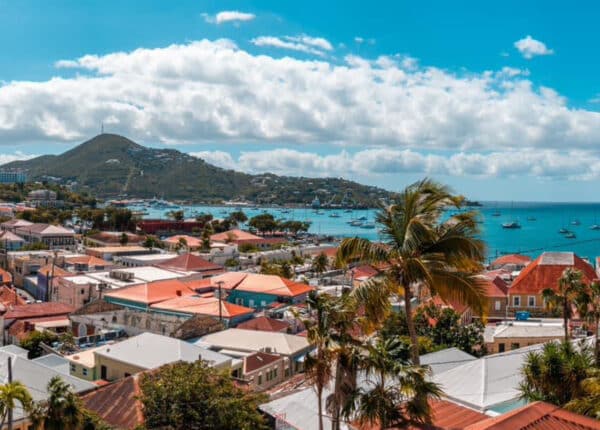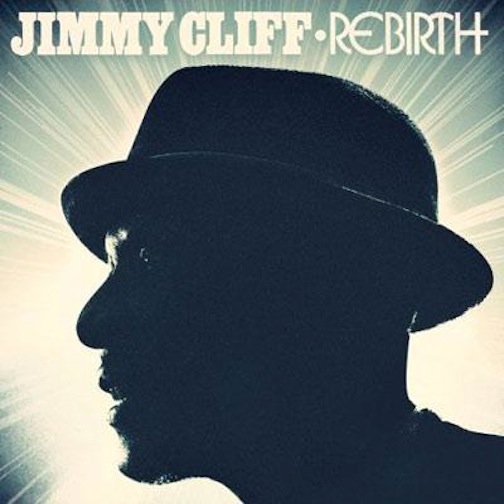By Alexander Britell
Jimmy Cliff, one of the titans of reggae, had gone seven years without an album until releasing “Rebirth” earlier this year. The crisply-made work, created in collaboration with veteran punk-music producer Tim Armstrong, represents a rebirth, not just of Cliff’s sound, but of the roots reggae music which he helped bring to global prominence. To learn more, Caribbean Journal talked to the reggae master about the new album, his artistic renaissance and his advice for Jamaica’s 50th anniversary of independence.
What led you to make “Rebirth?”
Well, first of all, I hadn’t made an album for like seven years. So a new album was due. And secondly, I call it “Rebirth” because it is a time of rebirth, of my career and as a creature on planet earth. That’s the long and short of it.
What was it like working with Tim Armstrong on the album, and how did the collaboration come about?
Well, reggae influenced rock music, and, as you know, Tim Armstrong is into punk music, and so when we talked on the phone, I felt good. When we met in the studio, I felt even better. I saw that he was a connoisseur of reggae — he knew all the sounds and rhythms, some way back. And that was very interesting to me, and so I decided to go ahead.
How would you define “Rebirth?”
Well it is a rebirth of my career. I’m on a rise again, after many rises and stops in my career. So since the new millennium kicked in, I wanted to rise again. In 2010, I got the induction in the Rock and Roll Hall of Fame. I accept goals for myself. And all of those goals have not yet been completed. So it’s the next step up to completing those goals — and I’m on that right now — that’s why it’s called “Rebirth.”
What are some of those goals?
Initially, I had set out to conquer the world with my music. I have done that in some kind of way — in any corner of the planet I’m known. There are other things that I have not completed. I have not made a string of number one hits, which enables me to become a stadium act. I have not made all the movies that I want to make, in order to win the Oscar. These are the uncompleted goals.
Is there a message in this album?
Well, the main message is about reggae music reminding people of a music form that came on the scene 40 years ago and made a big impact. The message that it carried was social and political — to take a rebirth from that time up to this time. That’s the rebirth, in the sense of the album, that’s the rebirth in the sense of the music. I went back to the Ska and Rocksteady era on this album, and initially what I was thinking about was all of the issues that reggae addresses — political issues, social issues. When I sing a song like “Children’s Bread,” it’s a social, political song. Or if I sing a song like “Guns of Brixton,” which is based on the Clash, it’s talking about the social issues that existed that are still quite relevant today. Or if I sing a song like “Rebel Rebel,” it’s to rebel against the machine that makes it depend on who you are to get along in the system. So it’s a combination of all of these things.
Do you think reggae still has the same social and political impact as it did when you began your career?
Not to the vast audience that I had then, because, at that time, there were more artists like myself that were putting out that message. Now the music is two different ways: it has the dancehall, which is about girls, cars and guns and stuff, and then you still have the root and culture message, which represents what I’m representing. So it still has an impact, but maybe not as vast as it did then.
Does it still have the same influence within Jamaica?
Within Jamaica, it still has the impact, but the other side of the expression is there as well. So it’s popular music, something that expresses the spirit of the people. And so the “girls and cars and superstars” is part of the culture now, so there are some artists that are expressing that. But for the morals and the truths and the rights that society needs to keep us stable and grounded and focused and positive, that is the kind of music that I do. And the kind of reggae that I do.
In “Reggae Music,” you mention first playing for Leslie Kong in Kingston. What did that mean to you?
That was a very important time in my career. Because I’d been looking around for producers to record my songs, and when I met Leslie Kong, it was like a door opened. And we had a great relationship from that moment onward until he passed away. He was very sensitive to music, and understood artists quite well. From that time, he became the King Kong of reggae music — he produced a whole lot of the international reggae hits of the world. So he put a lot of value on that part of my journey with that relationship.
Looking back 50 years to that time, do you have a top memory from your career?
There are many [memories], but that would be one. When I met Leslie Kong, that was very important. And “The Harder They Come” made such a big impact all over the world. That was a lot of big moments. Because, first of all, I wanted to be an actor, before wanting to be a singer — so to have people come and see me as an actor and a famous songwriter, that was a big moment for me. A concert I can think of was one I played in South Africa during the Apartheid era in Soweto, that left a big impact on my mind. So there are many actually.
Do you have a favourite song on this album?
The album is like a suite. You come off and you walk onto the veranda, and then you walk into the living room, and then you walk into the bedroom. So it isn’t like I would pick one that is the one over the others. But the song, “Bang” is one that I think is like the evolution of where I am today. I came into this world and into this life to make my bang. Don’t leave before you make your bang, and don’t leave with a whimper. You have to go out with a bang.
It’s 50 years for you, and 50 years for Jamaica’s independence. What advice would you give Jamaica on its anniversary this year?
I think people have to become conscious of the time. It’s such a new time. This millennium is so different than the last one in which we lived. We need to be conscious of history and prophecy, and that energies are changing. Women have to get their rightful place — women are going to be more of the leaders in this new time we’re coming in. All of those things. So the political landscape is going to change. Because of that, the political and spiritual landscape, all of the laws, rules and regulations that have been controlling the laws will change. It’s a new age, the Age of Aquarius. And so I think we must be conscious of that.
What are you working on next?
I am constantly writing, so I don’t have any particular time to save for a new album. I’m just writing and recording, so that is something I do always. I know that I don’t want to wait seven years — I will never do that again. Then, on the movie side of my career, we have three scripts on the table, and will see which ones will go into production early next year. So those are the near future things.








